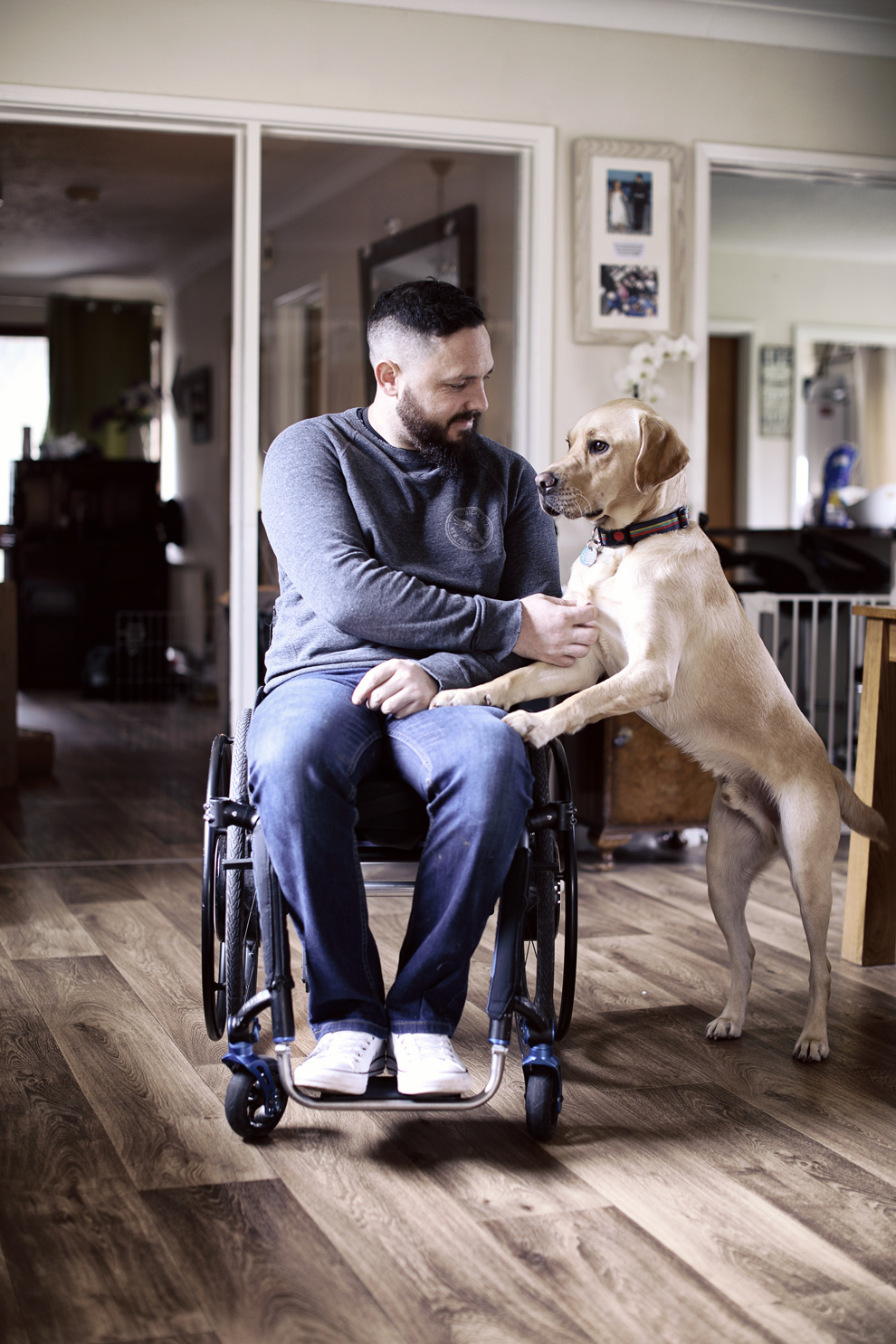Caring and Coping 2: the Family Experience of Living with Loss of Use of Limb/s aims to better understand the everyday experience of living with loss of use of limb
This new project has been developed directly as a response to ‘Caring and Coping 1: The Family Experience of Living With Limb Loss’, whereby one of the issues identified was that living with loss of limb/s is very different to living with the loss of use of your limb.
You can find out more about this original this research on the Blesma website by searching "caring and coping".
This current project wants to find out, from Blemsa Members and their families, the everyday living experiences of loss of use of limb/s. This is important research for Blesma to enhance service delivery, and also the work of other charities who support veterans and their families, for example Help for Heroes, as well as statutory health and social care providers.
In the first phase of this research, we are inviting up to 15 families to participate.
In particular, we want to hear from Loss of Use Members if:
• Your loss of limb use is caused by your military service but NOT associated with Op Telic or Op Herrick;
• Your loss of limb use occurred during service but NOT as a result of a combat injury;
• Your loss of limb use occurred after transition out of the military
• You are able to invite up to four members of your family network to participate.
By ‘family’, we mean those who are active in supporting your overall health and wellbeing. This could include those who are biologically related (parents/siblings) or through partnership/marriage, or friends or the people who form your support network. The important aspect here is that the persons are active in supporting you and your health and wellbeing.

If you are interested in being part of this project, and you fit this criteria, we invite you to identify up to 4 members of your ‘family’ (18 years and over) who would be willing to be interviewed for approximately 60 minutes each, including yourself.
Interviews will occur individually by telephone call, or electronically such as Zoom/FaceTime, by the VFI research team. This enables you to tell us of your experiences, problems and how you may have overcome problems, and will be used to inform the support and provision Blesma can provide to you and your family and that of the wider membership.
All interviews will be audio recorded only and your identity will not be referred to in the reporting of the study. All information you provide will be anonymised and kept as confidential. Personally identifiable information (for example, names/places) will be removed from the data. The research has gained research ethics approval at Anglia Ruskin University.
We understand this topic may be sensitive, and there is a risk that you may feel upset during the interviews. If this is the case, the interview will be stopped, and support will be available through Blesma’s network of Support Officers, who can be present in the home environment during the interviews, or available for contact as required.
For further support, we can connect you to appropriate support services, for example, Combat Stress. There is also the Veterans & Reserves Mental Health Programme (0800 0326258) and out of hours callers to the Veterans UK helpline (08081914218).
If you wish to be part of this research, please contact Maria on maria.iancu@aru.ac.uk to discuss the project in more detail.
Maria will then contact you to talk about the project and how you and to your family can take part. If then you wish to proceed, interview times will be set at your and your family's convenience.
We can help
We are dedicated to assisting serving and ex-Service men and women who have suffered life-changing limb loss or the use of a limb, an eye or sight. We support these men and women in their communities throughout the UK. Click the link below to find out the different kinds of support we offer.
Get Support
Leave a comment
Join fellow Members and supporters to exchange information, advice and tips. Before commenting please read our terms of use for commenting on articles.